Durch deutsches Land marschieren wir (SA Marschiert) [German English Lyrics]
2
0
19 Просмотры
Опубликован в 11 Nov 2024 / В
Фильм и анимация
Показать больше
0



 Timcast IRL
Timcast IRL

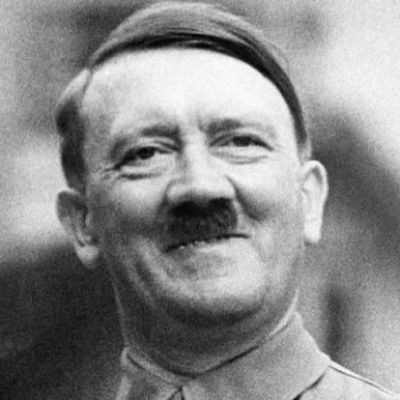 Life_N_Times_of_Shane_T_Hanson
Life_N_Times_of_Shane_T_Hanson

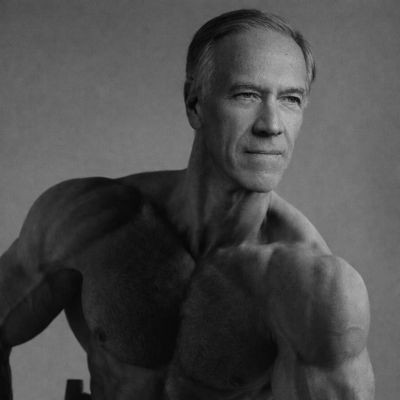 MikePompeoFanboy
MikePompeoFanboy
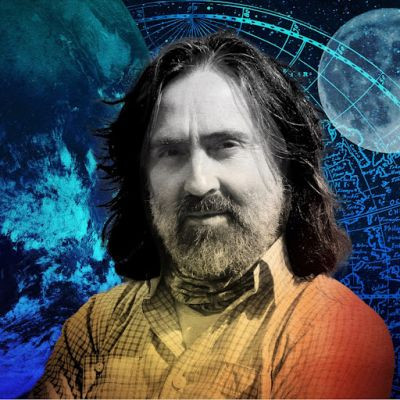 Neil Oliver
Neil Oliver
 KerrAvon
KerrAvon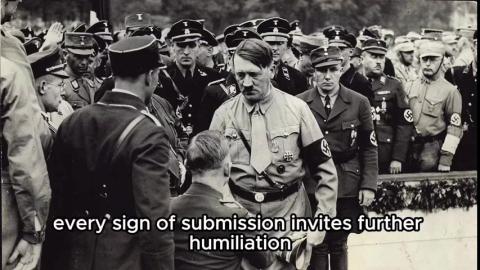





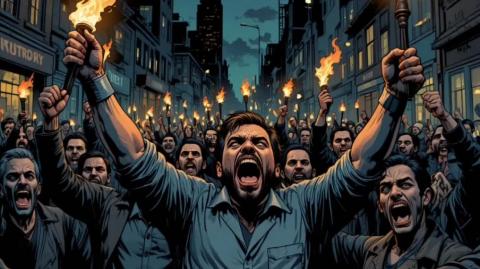






 Styxhexenhammer666
Styxhexenhammer666
Log in to comment
https://en.wikipedia.org/wiki/Argonnerwaldlied
Argonnerwaldlied ("Forest of Argonne Song") or "Lied der Pioniere" or "Pionierlied" ("Song of the Pioneers") is a German military march of World War I. It was composed by Hermann Albert Gordon in 1914/1915. It was used during World War I by the German Empire. Variations of the song with different lyrics were used by the Marxist Spartacus League, in Nazi Germany during World War II, and in East Germany.
In 1919, new lyrics were adopted by the revolutionary socialist Spartacus League in commemoration of the January 1919 Spartacist uprising. This version was later arranged by Hanns Eisler and performed by the Erich-Weinert-Ensemble in the German Democratic Republic.
Also known as "Durch deutsches Land marschieren wir", "SA marschiert-Lied" was used through the years of Nazi Germany. It originated in 1929 from Saxony and was a marching song of the National Socialist Sturmabteilung based on the tune of Argonnerwaldlied.
As the song spread through Germany, regional variations of the words "Durch deutsches Land" ("through German land") occurred and were substituted with "Durch Großberlin" ("through Greater Berlin"), "Durch Schwabenland" ("through Schwabenland"), etc. The third stanza also has some slight lyrical variations. The NSDAP songbook version adopted "Wir fürchten SPD und Rotfront nicht"[1] ("we fear not the SPD and Rotfront") whereas the Reichsarbeitsdienst adopted "Wir fürchten Moskau und die Juden nicht" ("we fear not Moscow and the Jews").
~~~~~~~~~~
There is a LOT in this - can't post because of space reasons.
https://en.wikipedia.org/wiki/Spartacus_League
The Spartacus League (German: Spartakusbund) was a Marxist revolutionary movement organized in Germany during World War I.[1] It was founded in August 1914 as the International Group by Rosa Luxemburg, Karl Liebknecht, Clara Zetkin, and other members of the Social Democratic Party of Germany (SPD) who were dissatisfied with the party's official policies in support of the war. In 1916 it renamed itself the Spartacus Group and in 1917 joined the Independent Social Democratic Party of Germany (USPD), which had split off from the SPD as its left wing faction.
During the November Revolution of 1918 that broke out across Germany at the end of the war, the Spartacus Group re-established itself as a nationwide, non-party organization called the "Spartacus League" with the goal of instituting a soviet republic that would include all of Germany. It became part of the Communist Party of Germany (KPD) when it was formed on 1 January 1919 and at that point ceased to exist as a separate entity.[2]
The League's name referred to Spartacus, the leader of a major slave uprising against the Roman Republic (73–71 BCE). For the Spartacists, his name symbolized the ongoing resistance of the oppressed against their exploiters and thus expressed the Marxist view of historical materialism, according to which history is driven by class struggles.
History
Background
At the 1907 congresses of the Second International in London and Stuttgart, it was decided that the European workers' parties would oppose the threat of war between the major European powers.[3] At the 1912 Basel conference, additional antiwar measures were decided on, including that the working classes should "exert every effort to prevent the outbreak of war by the means they considered most effective".[4] The SPD had explicitly and repeatedly opposed an imperialist war in Europe, approved measures against it and announced them publicly. During the July crisis of 1914 that followed the assassination of Archduke Franz Ferdinand of Austria-Hungary, it reaffirmed its rejection of war in nationwide large-scale demonstrations by its supporters.
On 4 August 1914, just days after the start of World War I, the Reichstag voted on loans to fund the war. The SPD's Reichstag membership voted unanimously in favor of both the loans and Burgfriedenspolitik, a policy of political truce under which the parties would support war loans and not criticize the government or the war, and the trade unions would not strike. Even Karl Liebknecht, an outspoken anti-militarist, voted in favor because of the SPD's unwritten rule to maintain party solidarity and unity. With its approval of the imperial government's war policy, the SPD parliamentary group abandoned three program points that they had adhered to since the party's founding: proletarian internationalism, class struggle and opposition to militarism.
~~~~~~~~~~~~~~~~~~~~
There is a lot in this too....... Mostly omitted for the reasons of space.
https://en.wikipedia.org/wiki/....Revolutionary_social
Revolutionary socialism is a political philosophy, doctrine, and tradition within socialism that stresses the idea that a social revolution is necessary to bring about structural changes in society. More specifically, it is the view that revolution is a necessary precondition for transitioning from a capitalist to a socialist mode of production. Revolution is not necessarily defined as a violent insurrection; it is defined as a seizure of political power by mass movements of the working class so that the state is directly controlled or abolished by the working class as opposed to the capitalist class and its interests.[1]
Revolutionary socialists believe such a state of affairs is a precondition for establishing socialism and orthodox Marxists believe it is inevitable but not predetermined. Revolutionary socialism encompasses multiple political and social movements that may define "revolution" differently from one another. These include movements based on orthodox Marxist theory such as De Leonism, impossibilism and Luxemburgism, as well as movements based on Leninism and the theory of vanguardist-led revolution such as the Stalinism, Maoism, Marxism–Leninism and Trotskyism. Revolutionary socialism also includes other Marxist, Marxist-inspired and non-Marxist movements such as those found in democratic socialism, revolutionary syndicalism, anarchism and social democracy.[2]
Revolutionary socialism is contrasted with reformist socialism, especially the reformist wing of social democracy and other evolutionary approaches to socialism. Revolutionary socialism is opposed to social movements that seek to gradually ameliorate capitalism's economic and social problems through political reform.[3]
In The Communist Manifesto, Karl Marx and Friedrich Engels wrote:
The proletariat, the lowest stratum of our present society, cannot stir, cannot raise itself up, without the whole superincumbent strata of official society being sprung into the air. Though not in substance, yet in form, the struggle of the proletariat with the bourgeoisie is at first a national struggle. The proletariat of each country must, of course, first of all settle matters with its own bourgeoisie. In depicting the most general phases of the development of the proletariat, we traced the more or less veiled civil war, raging within existing society, up to the point where that war breaks out into open revolution, and where the violent overthrow of the bourgeoisie lays the foundation for the sway of the proletariat. [...] The Communists fight for the attainment of the immediate aims, for the enforcement of the momentary interests of the working class; [...] The Communists disdain to conceal their views and aims. They openly declare that their ends can be attained only by the forcible overthrow of all existing social conditions. Let the ruling classes tremble at a Communistic revolution.[4]
Twenty-four years after The Communist Manifesto, first published in 1848, Marx and Engels admitted that in developed countries, "labour may attain its goal by peaceful means".[5][6] Marxist scholar Adam Schaff argued that Marx, Engels, and Lenin had expressed such views "on many occasions".[7] By contrast, the Blanquist view emphasised the overthrow by force of the ruling elite in government by an active minority of revolutionaries, who then proceeded to implement socialist change, disregarding the state of readiness of society as a whole and the mass of the population in particular for revolutionary change.[citation needed]
In 1875, the Social Democratic Party of Germany (SPD) published a somewhat reformist Gotha Program, which Marx attacked in Critique of the Gotha Program, where he reiterated the need for the dictatorship of the proletariat. The reformist viewpoint was introduced into Marxist thought by Eduard Bernstein, one of the leaders of the SPD. From 1896 to 1898, Bernstein published a series of articles entitled "Probleme des Sozialismus" ("Problems of Socialism"). These articles led to a debate on revisionism in the SPD and can be seen as the origins of a reformist trend within Marxism.[citation needed]
In 1900, Rosa Luxemburg wrote Social Reform or Revolution?, a polemic against Bernstein's position. The work of reforms, Luxemburg argued, could only be carried on "in the framework of the social form created by the last revolution". In order to advance society to socialism from the capitalist 'social form', a social revolution will be necessary:
Bernstein, thundering against the conquest of political power as a theory of Blanquist violence, has the misfortune of labeling as a Blanquist error that which has always been the pivot and the motive force of human history. From the first appearance of class societies, having class struggle as the essential content of their history, the conquest of political power has been the aim of all rising classes. Here is the starting point and end of every historic period. [...] In modern times, we see it in the struggle of the bourgeoisie against feudalism.[8][9]
In 1902, Vladimir Lenin attacked Bernstein's position in his What Is to Be Done? When Bernstein first put forward his ideas, the majority of the SPD rejected them. The 1899 congress of the SPD reaffirmed the Erfurt Program, as did the 1901 congress. The 1903 congress denounced "revisionist efforts".[citation needed]
World War I and Zimmerwald
Kick the Commie Jew Heads In.